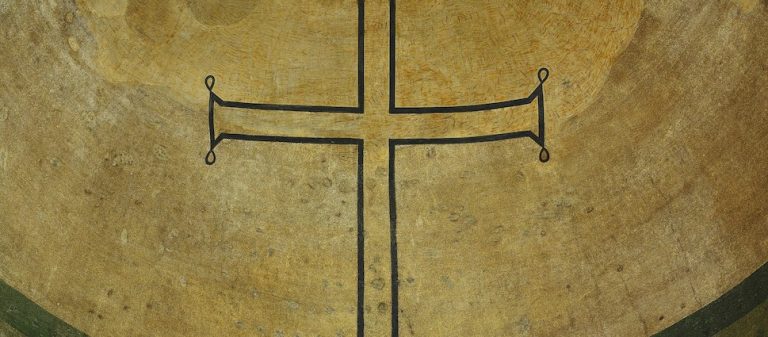“Where God does not find a mouth to speak, you must not find an ear to hear, nor a heart to believe.”
We are at the fourth of our reading the Puritan Paperback, Sermons of the Great Ejection. This title is a collection of nine sermons recalls one of the great turning points in English Christianity—when two thousand ministers were deposed from the established Church in what was called “The Great Ejection” The were unable for the sake of their conscience to conform to a series of Restoration Parliament laws of the Clarendon Code.
 The fourth sermon in the collection is one preached by Thomas Lye (Lee or Leigh), the variation in the spelling of his surname reflecting the more phonetic orthography of the period. Unique for the time he is a graduate of both Oxford and Cambridge. He was a pastor of conscience throughout his adult life, and has the distinction of preaching two farewell sermons! The first in 1651 when he refused to renounce his allegiance to King Charles II, (he was reinstated in an amnesty in 1654) then later in 1662 he was ejected even after supporting the 1660 agreement made by Charles II to ministers of the Established Church upon his return from exile in France. At the time of the Ejection, he was vicar (although of a presbyterian conviction) of All Hallows, Lombard Street in London. He was an effective and popular catechizer of children, keeping a school at his house in nearby Clapham throughout his years of non-conformity after his ejection. The two sermons in our Puritan Paperback are his sermons of 24 August 1662 preached in the morning service and the evening.
The fourth sermon in the collection is one preached by Thomas Lye (Lee or Leigh), the variation in the spelling of his surname reflecting the more phonetic orthography of the period. Unique for the time he is a graduate of both Oxford and Cambridge. He was a pastor of conscience throughout his adult life, and has the distinction of preaching two farewell sermons! The first in 1651 when he refused to renounce his allegiance to King Charles II, (he was reinstated in an amnesty in 1654) then later in 1662 he was ejected even after supporting the 1660 agreement made by Charles II to ministers of the Established Church upon his return from exile in France. At the time of the Ejection, he was vicar (although of a presbyterian conviction) of All Hallows, Lombard Street in London. He was an effective and popular catechizer of children, keeping a school at his house in nearby Clapham throughout his years of non-conformity after his ejection. The two sermons in our Puritan Paperback are his sermons of 24 August 1662 preached in the morning service and the evening.
His text was Philippians 4.1: “Therefore, my brethren dearly beloved and longed for, my joy and crown, so stand fast in the Lord, my dearly beloved.” Having been through a farewell once before in 1651, Lye used his morning sermon to explain the nature of a humble and godly pastor’s love for his congregation. It reminded me of conversations pastors have who have served in a parish for more than 15-20 years concerning the “legacy we leave behind.” Lye told his congregation that every officer called by God into ministry, no matter what the status of the office may be, remains an equal brother with the lowliest member of Christ’s church. It is because a godly pastor realizes the astonishing, strong, and tender love of God to the pastor that animates his passionate, strong, tender, and ardent love to the flock God has given into his care. Therefore members who remain resilient, obedient, and flourishing in their profession and their knowledge and love of the same Lord brings a godly pastor a joy and sense of accomplishment that transcends all worldly prizes. You get a real sense that Lye knew the biblical principle that the more I know my debt to God the more equal I am to other debtors to whom I am called to serve. Is it no wonder then that worldly status in office or recognition pale in significance for such a pastor?
His evening sermon was his charge to the congregation: it is the duty of every sincere believer to stand fast, fixed and steadfast even in the darkest and uncertain seasons of their lives as they are now in. Having set the exegesis in the morning (note how Lye assumes the congregation attends both morning and evening!) Lye dove straight in to set out what a steadfast attitude should be by bringing it into focus through a series of five contrasts:
- Exercise godly judgment when false doctrine arises from within and without.
- Remain resolute in each trial as it arises.
- Keep your faith’s soundness in God’s Word to counter any inward doubt that may assail you.
- Keep your conscience active to guard against any sin “crouching at your door.”
- Practice godly habits in study of God’s Word, prayer and attendance in local worship to defend against inconsistency in your Christian life.
His reasons for keeping steadfast have all to do with reference to the Lord Jesus first and the benefit to the believer second. To abandon Christ is to dishonor his suffering, his Spirit, his truth, and his sufficiency. Lye put it bluntly for his hearers, “Tell me, man, is your Christ able to protect you against all evil? And is he able to supply you with all good, or is he not? If he is not, then deny him, and whatsover you have said concerning him. If he is, then stand close to him.”
Lye concluded his final sermon to this congregation with a series of applications. I was impressed with how he began in an exhortation to endure character assassination patiently and to resists censuring those who conform. If you’ve been through this you know how hard it is not to get defensive or angry at those who openly slander you and how the isolation you experience makes it hard not to censure those who remain. Always the catechist Lye warned his members against “shaking doctrines”:
- That promote vagueness over precision, particularly in its ethical, “how then shall we live” consequences.
- That lift up man’s free will while debasing God free grace.
- That lift up self-righteousness while lessening the righteousness of Christ.
He wrote with an understanding of the underground Church in that what you no longer hear from the pulpit, you must read in private. “If we could hear a sermon well preached, our godly parents would engage us to read one well penned.” When you are forbidden to assembly publicly, then meet in secret. “Wherever Christ finds a tongue to speak, I am bound to find an ear to hear and a heart to believe.” His final entreaty was to be a praying people, “Temptations and trials are great, and certainly where they are so, prayer should be strong” and for fathers to nurture their families and households in the knowledge and love of the Lord.”

 The fourth sermon in the collection is one preached by Thomas Lye (Lee or Leigh), the variation in the spelling of his surname reflecting the more phonetic orthography of the period. Unique for the time he is a graduate of both Oxford and Cambridge. He was a pastor of conscience throughout his adult life, and has the distinction of preaching two farewell sermons! The first in 1651 when he refused to renounce his allegiance to King Charles II, (he was reinstated in an amnesty in 1654) then later in 1662 he was ejected even after supporting the 1660 agreement made by Charles II to ministers of the Established Church upon his return from exile in France. At the time of the Ejection, he was vicar (although of a presbyterian conviction) of All Hallows, Lombard Street in London. He was an effective and popular catechizer of children, keeping a school at his house in nearby Clapham throughout his years of non-conformity after his ejection. The two sermons in our Puritan Paperback are his sermons of 24 August 1662 preached in the morning service and the evening.
The fourth sermon in the collection is one preached by Thomas Lye (Lee or Leigh), the variation in the spelling of his surname reflecting the more phonetic orthography of the period. Unique for the time he is a graduate of both Oxford and Cambridge. He was a pastor of conscience throughout his adult life, and has the distinction of preaching two farewell sermons! The first in 1651 when he refused to renounce his allegiance to King Charles II, (he was reinstated in an amnesty in 1654) then later in 1662 he was ejected even after supporting the 1660 agreement made by Charles II to ministers of the Established Church upon his return from exile in France. At the time of the Ejection, he was vicar (although of a presbyterian conviction) of All Hallows, Lombard Street in London. He was an effective and popular catechizer of children, keeping a school at his house in nearby Clapham throughout his years of non-conformity after his ejection. The two sermons in our Puritan Paperback are his sermons of 24 August 1662 preached in the morning service and the evening.























